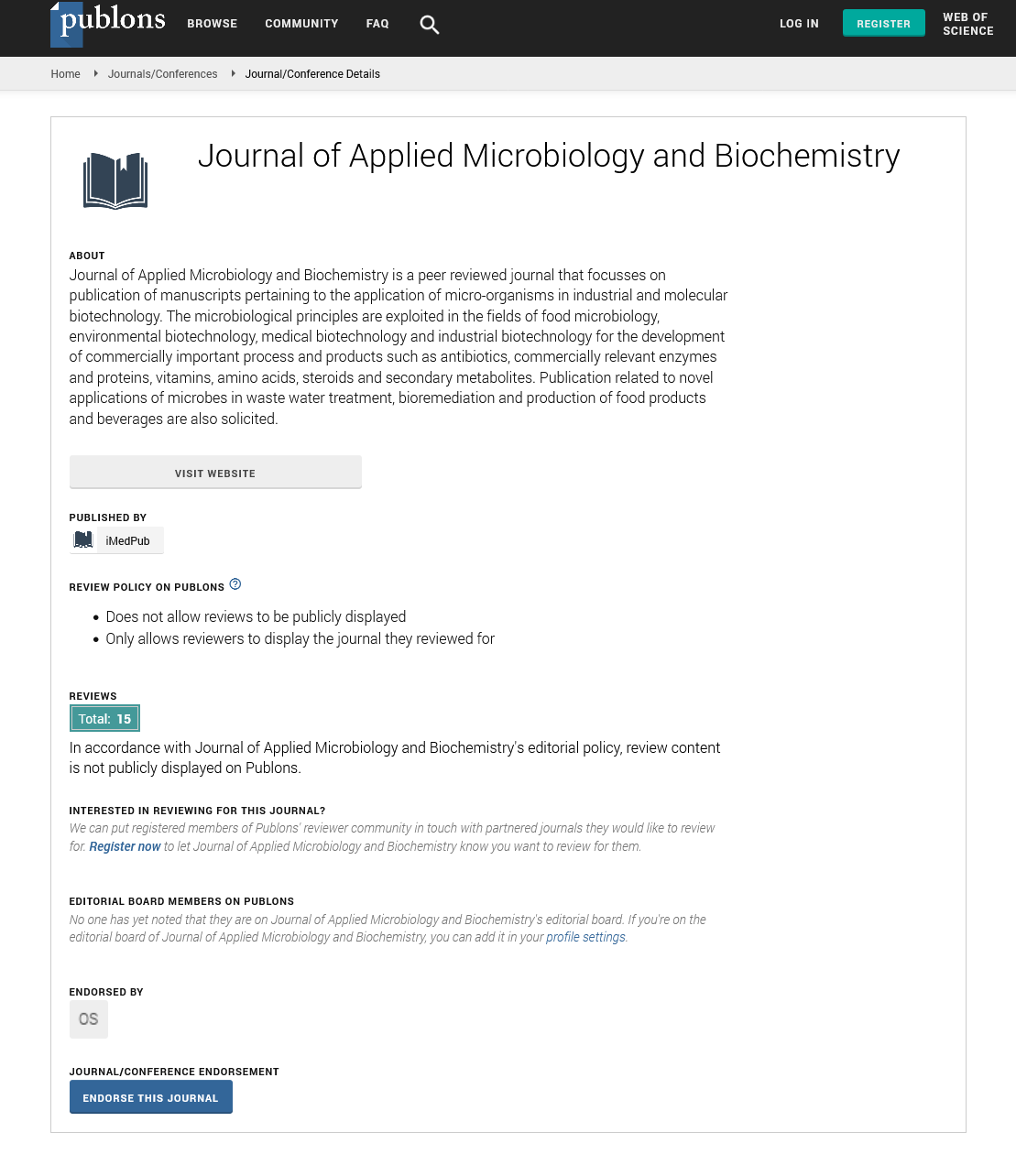ISSN : ISSN: 2576-1412
Journal of Applied Microbiology and Biochemistry
Abstract
Studies on antibacterial activity of microbial strains isolated from soil samples
Microbial production of secondary metabolites and especially those with therapeutic importance, such as “antibiotics”, have been given significant attention worldwide regarding their role in the management of infectious disease. Nowadays, the antibiotic resistance is increasing dramatically and the discovery of new drugs from microbial sources represents a major challenge among the researches. Antibiotics are low molecular-weight molecules produced as secondary metabolites, mainly by microorganisms that live in the soil. Actinomycetes, mainly Streptomyces species, are well-known for bioactive compounds production.
The aim of our study was to investigate the ability of new microbial strains with potential of antibiotics production. The strains were preliminary isolate from soil samples and identified using MALDI-TOF mass-spectrometry as species which belong to the Streptomyces genus. Submerged fermentation was followed for the production of antibiotics and agar disc diffusion assay was done to determine the antimicrobial activity of the crude extract. The active metabolites were tested for antibiotic activity against two human pathogens, Escherichia coli ATCC 8739 and Staphylococcus aureus ATCC 6538 strains. The results showed a good antibacterial activity with the diameter of inhibition zones more than 25 mm in the case of S. aureus, and more than 15 mm in the case of E.coli, respectively. In conclusion, the isolated strains can represent an important source of antimicrobial bioactive substances, which need to be further explored.
Author(s): Roxana Madalina Stoica
Abstract | PDF
Share This Article
Google Scholar citation report
Citations : 342
Journal of Applied Microbiology and Biochemistry received 342 citations as per Google Scholar report
Journal of Applied Microbiology and Biochemistry peer review process verified at publons
Abstracted/Indexed in
- Google Scholar
- China National Knowledge Infrastructure (CNKI)
- Cosmos IF
- Directory of Research Journal Indexing (DRJI)
- Publons
- Secret Search Engine Labs
Open Access Journals
- Aquaculture & Veterinary Science
- Chemistry & Chemical Sciences
- Clinical Sciences
- Engineering
- General Science
- Genetics & Molecular Biology
- Health Care & Nursing
- Immunology & Microbiology
- Materials Science
- Mathematics & Physics
- Medical Sciences
- Neurology & Psychiatry
- Oncology & Cancer Science
- Pharmaceutical Sciences
